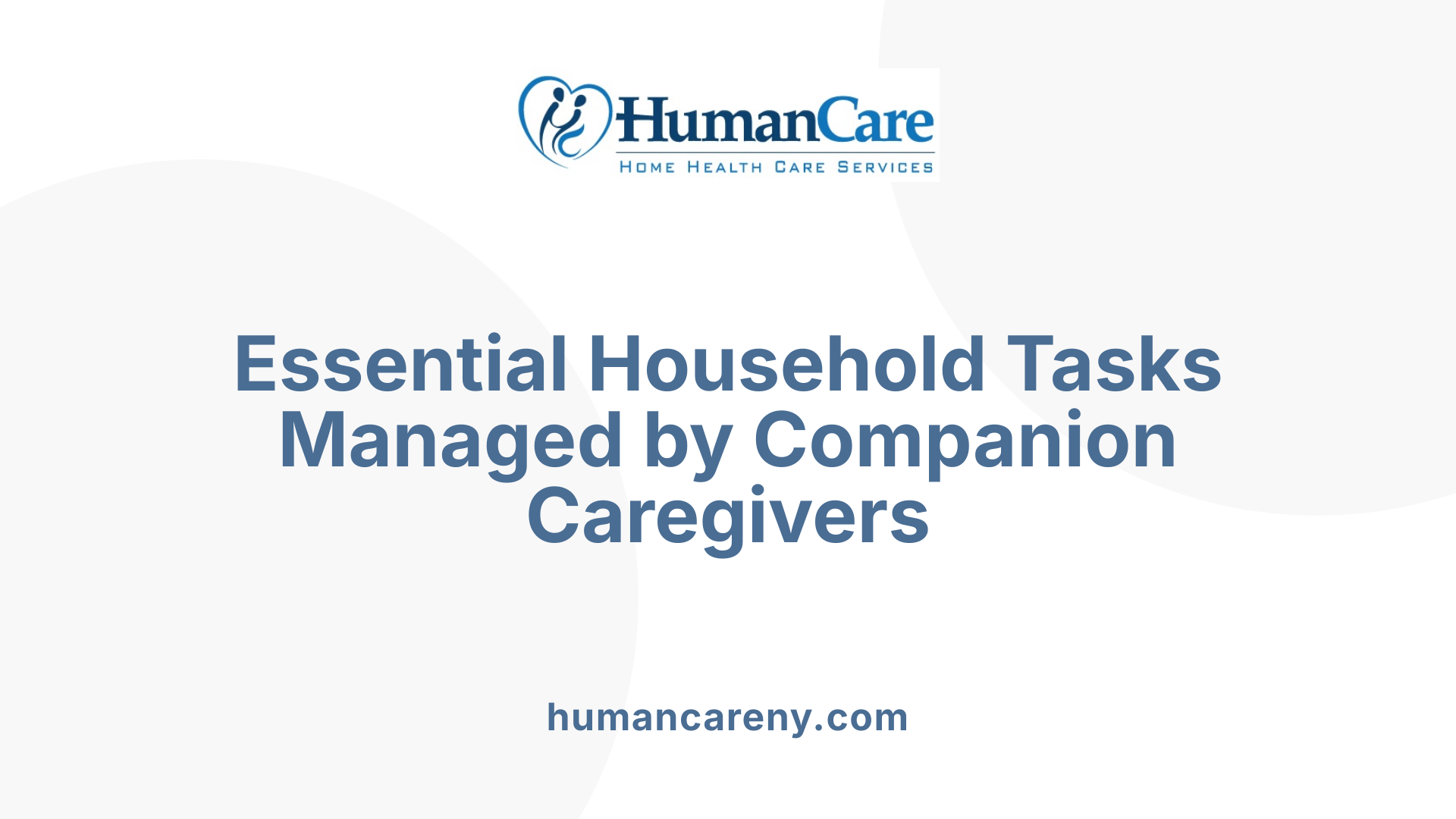Supporting Seniors at Home: The Role of Companion Care
As longevity increases, many seniors prefer to remain in the comfort of their own homes. Companion care services play a vital role in helping older adults maintain their independence by addressing both their emotional well-being and household management needs. This comprehensive approach ensures that seniors can enjoy a safe, comfortable, and socially connected life at home, reducing reliance on institutional care and promoting aging in place.
Duties and Responsibilities of Companion Caregivers in Household Support

What are the typical duties of a companion caregiver, especially regarding household chores?
Companion caregivers focus on providing emotional support, companionship, and practical assistance with daily activities. They primarily help with light household chores such as cleaning, laundry, and organizing the home to keep it safe and comfortable. Meal preparation and grocery shopping are also key tasks, ensuring that seniors have nutritious food without the burden of cooking or shopping themselves. Additionally, they assist with transportation to medical appointments, errands, and social outings.
Safety evaluation is an essential part of their role. Caregivers check for hazards within the home, such as loose rugs or clutter, and recommend safety modifications to prevent falls or accidents. Although they support household chores, they do not perform medical tasks like administering medications, which require licensed health professionals. Instead, they work closely with families and healthcare providers to tailor services, emphasizing emotional well-being, safety, and an organized living environment. Their overall goal is to enhance seniors' quality of life, helping them stay independent and engaged in their own homes.
The Psychological and Social Benefits of Companion Care

How does companion care support seniors in maintaining independence at home?
Companion care plays an essential role in helping seniors stay independent within their own homes. By providing regular social interaction, it reduces feelings of loneliness and fosters emotional well-being. Companions assist with everyday activities such as bathing, grooming, meal preparation, and light housekeeping, enabling seniors to perform these tasks at their own pace and remain in familiar surroundings.
Personalized care plans are developed in collaboration with healthcare professionals to meet individual needs. These plans include safety supervision, health monitoring, and assistance with mobility, which help prevent accidents and support physical health. Moreover, companions help seniors manage chronic conditions or recovery from illness, enhancing their confidence to live independently. Overall, by addressing both practical and emotional needs, companion care empowers seniors to live comfortably, confidently, and with dignity in their homes.
In what ways do companionship activities enhance emotional well-being?
Engaging seniors in various activities such as playing games, reminiscing about past experiences, doing arts and crafts, listening to music, or participating in hobbies stimulates cognitive functions and creates feelings of happiness. These activities serve as a source of joy, purpose, and connection, actively fighting against social isolation and depression.
Companions facilitate conversations and shared leisure pursuits that foster a sense of belonging and mental agility. Regular engagement in hobbies or outings boosts self-esteem and encourages a positive outlook on life. These interactions also provide emotional relief, helping seniors cope with feelings of grief, anxiety, or sadness. By maintaining mental stimulation and emotional ties, companionship activities greatly contribute to overall mental health and psychological resilience.
What is the role of in-home companions in promoting social connectedness?
In-home companions are vital in enhancing social connectedness for seniors who may otherwise experience social isolation. They encourage participation in social activities, accompany seniors to community events, or help them utilize technology like video calls and social media platforms to stay in touch with family and friends.
Regular friendly conversations and shared activities help seniors feel valued and emotionally secure. This ongoing social engagement supports mental health by reducing feelings of loneliness and reinforcing a sense of community and belonging. For many seniors, these interactions are crucial for maintaining a lively, active social life right from their own homes, ultimately preserving their emotional well-being.
How can companion care contribute to mental health and emotional resilience?
Companion care significantly supports mental health and fosters emotional resilience through consistent presence, emotional support, and social stimulation. Caregivers provide a comforting and attentive environment, listening to concerns, and offering reassurance, which helps seniors manage feelings of grief, anxiety, or depression.
Through engaging activities, meaningful conversations, and facilitating outings and social participation, companions help seniors maintain a sense of purpose and joy. These interactions bolster emotional strength, encourage optimistic outlooks, and foster a feeling of being cared for and understood. As a result, seniors develop resilience, cope better with life’s emotional challenges, and enjoy a higher quality of life, ultimately leading to improved mental health outcomes.
Supporting Seniors' Independence and Well-being
Overall, companion care serves as a comprehensive service that not only assists seniors with household chores but also promotes their emotional health, social engagement, and independence. By providing support with daily activities, safety supervision, and meaningful social interactions, companion caregivers enable older adults to thrive in their own homes. This holistic approach assures families of their loved ones' safety and happiness, reinforcing the importance of companionship in improving quality of life as seniors age in place.
References
- 8 Ways Companion Care Helps Seniors Live at Home Longer
- Understanding Senior Companion Care
- How Companion Care Services Help Seniors Live Independently
- Companion Care for Older Adults: What to Consider?
- How Companion Care Can Help Combat Senior Isolation and ...
- Companion Care | Homemaking Services | Right at Home
- Companion Care for Seniors
- Services for Older Adults Living at Home | National Institute on Aging
- Elderly Companion Care Near You - Visiting Angels
- Home Companion Care for Seniors | A Place for Mom



